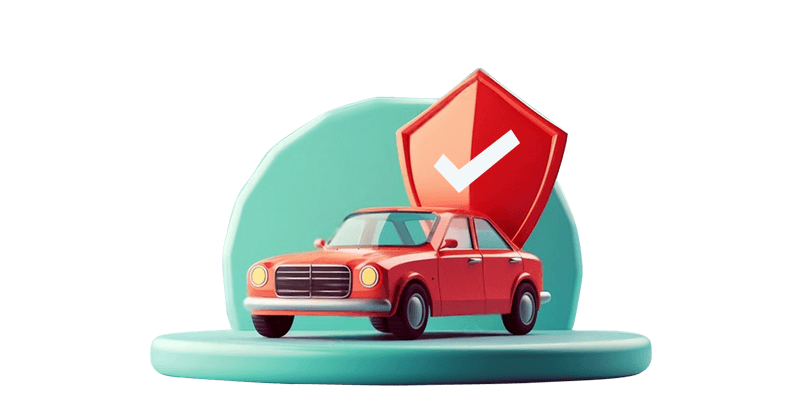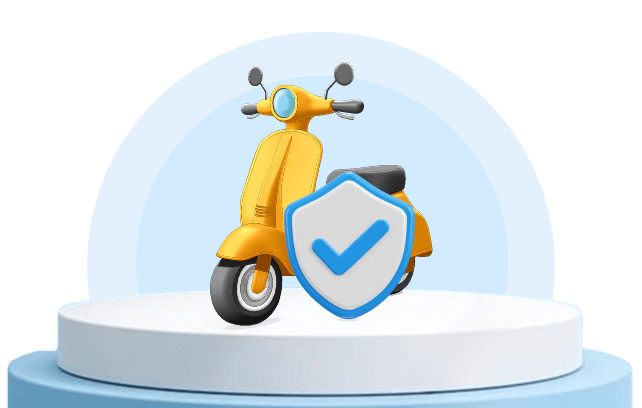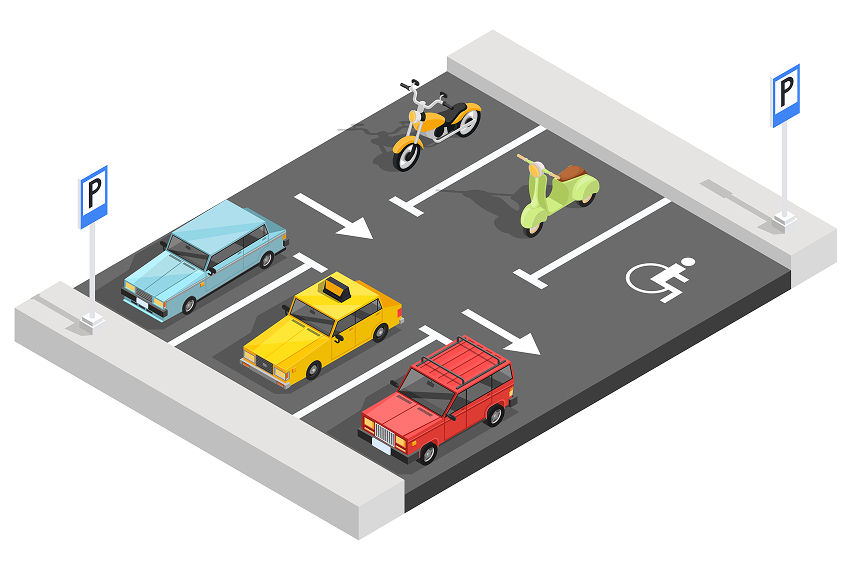
Congratulations, you've just got your first car. Now it's time to discuss some serious matters, one of which is car insurance.
So, what is car insurance, and why is it exactly required? Car insurance is a promise, an agreement between you (the policyholder) and the insurance company, wherein the latter offers a financial protection plan that covers you and your motor vehicle in exchange for a premium. Overall, having your car insured not only offers freedom from financial liability but also ensures peace of mind.
Talking specifically about the Philippines, car insurance here is mandatory by law, at least a part of it; the rest is optional. Let us now discuss car insurance in the Philippines in detail, starting with the type of policies available.
Car insurance policies in the Philippines are broadly categorised as follows -
- Compulsory Third Party Liability (CTPL) Insurance: This one is the most basic car insurance that every motor vehicle owner needs to have - it is mandatory by law and is required for LTO vehicle registration. As for coverage, it offers protection against third-party bodily injuries or death.
- Comprehensive Insurance: This is a step up from CTPL insurance, not mandatory but highly recommended for its wide protection. Depending on the provider, it offers coverage against various risks, including theft, damage, flood, fire, and vandalism.
- Add-ons: On top of the car insurance scale sit add-ons, again optional but recommended for their personalised protection. Some standard add-on options include Acts of God, Roadside Assistance, Personal Accident coverage, and Towing coverage, to name a few. You can read more about the top 10 car insurance add-ons here.
Also Read: CTPL vs. Comprehensive Car Insurance: What’s the Difference?
Key factors a first-time car insurance applicant must consider
Choose the right insurance provider
It is crucial to select a provider with a strong reputation that offers fast claim processing, good customer service (preferably 24/7), optimum coverage, and flexible policy terms. Here, we’d recommend reading customer reviews to get a better idea about the provider.
Coverage, premium, and deductible
It is essential to understand the key policy terms, including premium, coverage, and deductible. Coverage is the specific protection your policy offers; premium is the annual amount you pay for the coverage. Lastly, the deductible is the amount of money the policyholder pays out-of-pocket before the claim amount kicks in.
Policy inclusions and exclusions
It is highly recommended to read the fine print and check all the inclusions and exclusions. This will help avoid any surprises later on.
 Photo from Freepik
Photo from FreepikPractical insurance-related tips for first-time car owners
Here are some essential practices a car insurance applicant must follow to gain optimum benefit from their insurance policy.
|
Practical insurance tips |
|
|
Assess your insurance requirements |
It is crucial to assess your driving needs before buying insurance. You can do so by asking yourself the following questions -
|
|
Don’t overpay for insurance |
It is common for first-time insurers to overpay; however, it can be avoided if you -
|
|
Avoid common insurance mistakes |
Usually, insurers (mostly first-timers) commit the following mistakes, which they later regret, including -
|
Things to know about car insurance renewal
In addition to learning about car insurance and coverage, a policyholder needs to know about the policy renewal and its process. Here we are answering a few concerns regarding policy renewal.
|
Basics of car insurance renewal |
|
|
When to renew? |
Typically, a car insurance policy in the Philippines lasts for a year, so it is preferable to renew the policy before the last day. |
|
How to renew? |
An insurance policy can be renewed in multiple ways, including via the authorised insurance agent, online through the insurer’s website, or offline by visiting the provider’s office. |
|
What documentation is required for renewal? |
A policyholder needs to submit the following to initiate the renewal process -
|
|
How to save money on renewal? |
A policyholder can lower the renewal premium by -
|
Also Read: Step-by-step guide to renewing your car insurance in the Philippines
Understanding the car insurance claim process
We take out insurance to cover our needs when they arise, thereby shifting our financial liability to the insurer. However, this won’t be possible without a clear understanding of the claim process.
|
Basics of the car insurance claim process |
|
|
How to file a car insurance claim? |
Filing an insurance claim involves a few basic steps -
|
|
What documents are needed for filing a claim? |
Usually, car insurance providers require the applicant to submit the following paperwork -
|
|
What should you do if the claim gets denied? |
Don’t worry, here’s what you can do:
|
|
What are the common reasons for denial claims? |
Here are a few common reasons -
|
Bottom line
For a new car owner who is also a first-time buyer, purchasing car insurance can be overwhelming, especially with all the unfamiliar terms, paperwork, and documentation. However, the fact is that insurance is something that cannot be skipped, so it’s better to learn everything quickly and ask questions whenever in doubt. Doing so will ensure that you go from being clueless and confused to confident in no time.
In this article, we have discussed all the key aspects of car insurance in the Philippines, including coverage options, selecting the right insurance provider, policy renewal, and filing a claim. Read everything carefully, including the previously covered topics, and understand car insurance like the back of your hand.
Remember, car insurance is a must; it is not only a legal requirement but also necessary for financial security and peace of mind.
Also Read: What happens when your policy expires? Renewal tips & reminders
FAQs
Q1. Is it possible to skip car insurance in the Philippines?
Ans. No. Car insurance is mandatory in the Philippines; at the very least, the law requires you to get CTPL insurance for LTO car registration and provide a safety net for everyone on the roads.
Q2. What coverage does CTPL insurance offer to car owners?
Ans. CTPL insurance does not offer any specific coverage to the car owner; instead, it financially protects the policyholder against third-party bodily injuries or death.
Q3. I need coverage against theft. Which insurance plan should I consider?
Ans. It depends on your insurance provider; while some offer theft coverage as part of comprehensive insurance, others offer it as an add-on.
Q4. What is the key difference between CTPL and comprehensive insurance?
Ans. CTPL insurance is mandatory and covers third-party injuries or death. On the other hand, comprehensive insurance is optional and offers wide protection to the policyholder.
Q5. Can I transfer my car insurance policy to someone else?
Ans. Yes, you can, provided the car ownership is also legally transferred. You see, car insurance is tied to the vehicle’s registered owner, so a change in ownership requires a transfer of the policy.
Q6. Does my car insurance policy cover natural disasters like floods?
Ans. It depends on your car insurance policy. If it includes Acts of God (AOG) coverage, then you are covered against natural calamities like earthquakes, floods, typhoons, and landslides. Note that, depending on your provider, the AOG coverage can either be part of comprehensive insurance or an add-on.
Q7. What are the consequences of not insuring a motor vehicle in the Philippines?
Ans. The consequences of not insuring a motor vehicle include no LTO registration for the vehicle, significant out-of-pocket expenses in the event of an accident, and potential legal issues in the aftermath.
Q8. Is it possible to switch car insurance providers in the Philippines?
Ans. Yes, of course. A policyholder is free to switch insurance providers, both at the time of policy renewal and at any time during the policy term. All you need to do is find & secure a new provider, cancel the old policy, and you are good to go.
Q9. When should I consider switching to a new insurance provider?
Ans. You can consider switching if you are not satisfied with the current provider in terms of claim process, customer service, coverage, or price.
Q10. When should I renew my car insurance policy?
Ans. Make sure to renew your insurance policy before it expires, i.e., usually after a year from the date of purchase. Delay in policy renewal might result in lapse of coverage.
Q11. I missed my insurance policy date. What will happen now?
Ans. Your insurance policy will lapse, leaving you with no coverage. The list of consequences includes fines from the Land Transportation Office (LTO), financial liability for damages, and the loss of accumulated benefits.
Q12. Can the policy be renewed after the expiry date?
Ans. Yes, during the grace period. However, the process is somewhat complicated and involves a mandatory vehicle inspection, new terms, and a higher premium.
Q13. What should you do immediately after a car insurance policy expires?
Ans. If your car insurance policy has expired, you should take the following steps: stop driving immediately, contact your insurance provider, and prepare for a vehicle inspection.
14. How can I lower my premium during policy renewal?
Ans. You can do so by maintaining a clean driving record, inquiring about no claim bonus, and removing unnecessary coverage.
Q15. What documents are required for policy renewal?
Ans. Typically, you will need a vehicle’s OR/CR, a valid ID, and a previous insurance policy.
Q16. Will I still be able to file an insurance claim if the accident was my fault?
Ans. Yes, you’ll be able to file an insurance claim even if you are at fault; the extent of coverage depends on your policy.
Q17. Can I appeal a denied insurance claim?
Ans. Yes, you can. Start by asking for a written explanation from your insurer and submit additional documents to strengthen your claim. If that doesn’t work, escalate the matter to the Insurance Commission.
Q18. Will filing insurance claims increase my premium?
Ans. Not necessary, however, frequent claims within a short period can affect your renewal rate.
Q19. How long does it take to process an insurance claim?
Ans. The timeframe varies with providers and also depends on the complexity of the case and the completion of the documentation.
Also Read: Car accident in the Philippines? Here’s the photo evidence you need for filing a claim










